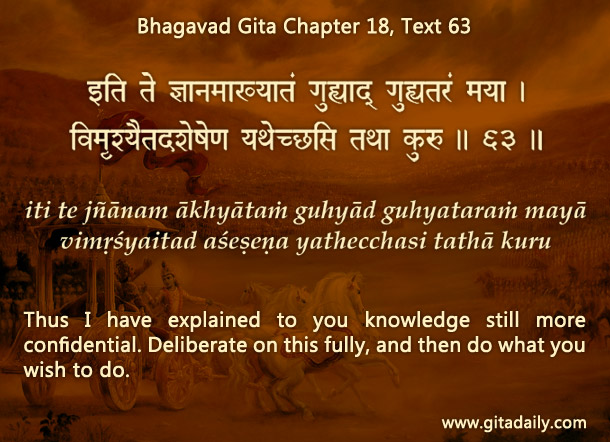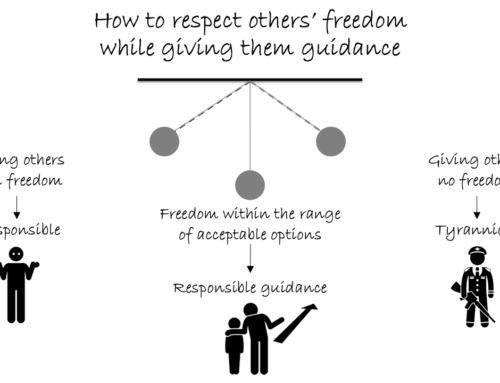Some people view contemplation and action as opposites: “If we are contemplative, we can’t be active.” To substantiate their view, they point to the classification of spiritual paths into two categories: contemplative and active.
Such categorization is meant to identify the overall nature of various paths, not to neglect the reality that contemplation needs to precede any action if that action is to be wisely chosen.
Gita wisdom explains that we all are souls, who are presently placed in body-mind machines that have their own programming. Such programming impels us to react in particular ways to particular stimuli. These reactions often arise without our intent or even consent. For example, when we see a marshmallow, we crave to eat it. We may have resolved to diet, yet our hand goes to it and places it in our mouth even before we realize what we are doing. Eating an extra food item may not matter much, but many of our default reactions do matter. They keep us entangled in unhealthy habits and prevent us from tapping our potentials.
To get out of our programming, we need to place a brake between stimulus and reaction. And what enables us to put that brake is contemplation. Here, contemplation doesn’t mean renouncing the world to go to a mountain cave; it means using our intelligence to evaluate and regulate what we do. Stressing the necessity of such contemplation, the Gita concludes with a call to deliberate its message and then choose one’s course of action (18.63).
When we learn to contemplate before acting, especially in contexts when our actions can have significant consequences, we can act in ways that are not programmed reactions but are conscious choices — choices that express our deepest values and fulfill our highest potentials.
Think it over:
- How are our actions mostly programmed reactions?
- How can we get out of our programming?
- How can you use contemplation to make better choices?
***
18.63 Thus I have explained to you knowledge still more confidential. Deliberate on this fully, and then do what you wish to do.
To know more about this verse, please click on the image
Explanation of article:
Podcast:



Leave A Comment